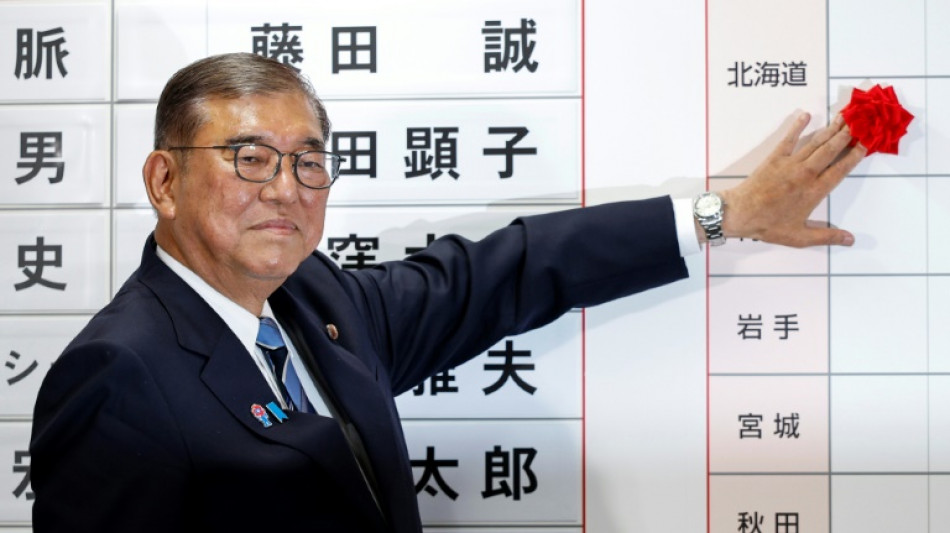

Japan PM's future in doubt after election debacle
Japanese Prime Minister Shigeru Ishiba's future was unclear Monday after his coalition appeared to have disastrously lost its upper house majority in elections that saw strong gains by a right-wing populist party.
The Liberal Democratic Party (LDP), which has governed almost continuously since 1955, and its partner Komeito had to win 50 seats in Sunday's vote but they secured only around 41, according to local media projections.
Voters angry at inflation turned to other parties, notably the "Japanese first" Sanseito, which made strong gains with its "anti-globalist" drive reminiscent of US President Donald Trump's agenda.
The debacle comes only months after Ishiba's coalition also lost its majority in the lower house, suffering the LDP's worst result in 15 years.
Ishiba, 68, a self-avowed policy "geek" seen as a safe pair of hands when he won the LDP leadership in September -- on his fifth attempt -- was tight-lipped late Sunday about his future.
"It's a difficult situation, and we have to take it very humbly and seriously," Ishiba told broadcaster NHK. Asked about his future, he said only that he "cannot speak lightly of it".
"We can't do anything until we see the final results, but we want to be very aware of our responsibility," Ishiba added.
If he goes, it was unclear who might step up as the LDP's 11th premier since 2000 now that the government needs opposition support in both chambers.
"Ishiba may be replaced by someone else, but it's not clear who will be the successor," Hidehiro Yamamoto, politics and sociology professor at the University of Tsukuba, told AFP.
- Rice price -
After years of stagnant or falling prices, consumers in the world's fourth-largest economy have been squeezed by inflation since Russia's 2022 invasion of Ukraine.
In particular, the price of rice has doubled, squeezing many household budgets despite government handouts.
Voter Hisayo Kojima -- one of legions of older people in Japan's falling and ageing population -- said outside a voting station on Sunday that her pension "is being cut shorter and shorter".
"We have paid a lot to support the pension system. This is the most pressing issue for me," the 65-year-old told AFP in Tokyo.
Not helping is lingering resentment about an LDP funding scandal, and US tariffs of 25 percent due to bite from August 1 if there is no trade deal with the United States.
Japanese imports are already subject to a 10 percent tariff, while the auto industry, which accounts for eight percent of jobs, is reeling from a 25 percent levy.
Weak export data last week, which showed plummeting US-bound auto deliveries, stoked fears that Japan could tip into a technical recession.
Despite Ishiba securing an early meeting with Trump in February, and sending his trade envoy to Washington seven times, there has been no accord.
- 'Japanese first' -
The last time the LDP and Komeito failed to win a majority in the upper house was in 2010, having already fallen below the threshold in 2007.
That was followed by a rare change of government in 2009, when the now-defunct Democratic Party of Japan governed for a rocky three years.
Today, the opposition is fragmented, and chances are slim that the parties can form an alternative government.
Populist opposition party Sanseito wants "stricter rules and limits" on immigration, opposes "globalism" and "radical" gender policies, and wants a rethink on decarbonisation and vaccines.
Last week, it was forced to deny any links to Moscow -- which has backed populist parties elsewhere -- after a candidate was interviewed by Russian state media.
"They put into words what I had been thinking about but couldn't put into words for many years," one voter told AFP at a Sanseito rally.
A.Malhotra--MT




